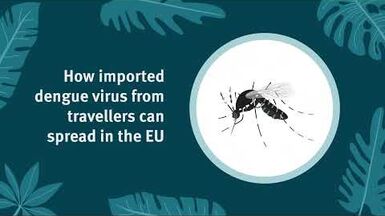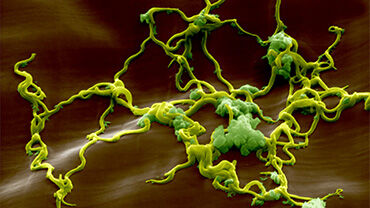Significant increase in travel associated Dengue Fever in GermanyArchived
Few and limited occasions of dengue virus transmission have recently been reported in Europe, which were not unexpected considering the presence of the vector Aedes albopictus. Dengue infections among travellers need to be monitored, in particular during the seasons of high vector activity.
Allwinn R. Medical Microbiology and Immunology Feb 2011.
DescriptionThe author investigated the occurrence of Dengue Fever (DF) in returning travellers within the Frankfurt/Main area in Germany over a 5-year period. From 2005 to 2010, serum samples of 594 returning travellers with clinically suspected DF were analysed, using 3 main diagnostic assays, to identify infection and serotype. For 60 patients DF infection was established, with Southeast Asia having been their main travel destination. The highest number of cases was detected in 2010 (21 cases), compared to only five cases in 2007. Suggested reasons for the increase of DF in travellers in 2010 include the availability of more sensitive tests and increased awareness for vector-borne diseases. The active promotion of awareness and preventive measures remains an important task of health care practitioners.
Public Health significance Few and limited occasions of dengue virus transmission have recently been reported in Europe, which were not unexpected considering the presence of the vector Aedes albopictus. Dengue infections among travellers need to be monitored, in particular during the seasons of high vector activity. The number of imported dengue cases might also reflect the level of transmission in endemic countries.
Link to the article: "Significant increase in travel-associated dengue fever in Germany"





